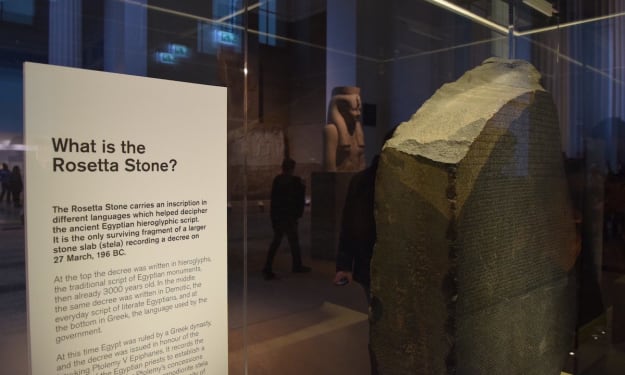Content warning
This story may contain sensitive material or discuss topics that some readers may find distressing. Reader discretion is advised. The views and opinions expressed in this story are those of the author and do not necessarily reflect the official policy or position of Vocal.
MONEY MATTER
Unraveling the Past, Present, and Future of Money
Introduction
• The History of Money
• Functions of Money
• Types of Money
• The Role of Money in Modern Society
• Challenges and Future of Money
Money is a fascinating concept that has evolved over centuries, serving as a medium of exchange, a unit of account, and a store of value. It plays a central role in economies, shaping our daily lives and influencing global dynamics. Let's delve into the intricacies of money, its history, functions, types, and the role it plays in modern society.
1 .The history of Money
The concept of money predates recorded history, with early forms of currency ranging from livestock and grains to shells and precious metals. These primitive forms of money facilitated trade and commerce, allowing individuals to exchange goods and services without the limitations of barter systems.
As civilizations progressed, so did the evolution of money. Ancient societies such as Mesopotamia and Egypt introduced standardized units of currency, including metal coins and clay tablets representing monetary value. The invention of paper money in China during the Tang Dynasty further revolutionized trade and commerce, paving the way for modern banking systems.
2 .Functions of Money
Money serves three primary functions in an economy:
1. Medium of Exchange: Money facilitates the exchange of goods and services by eliminating the need for direct barter. It acts as a universally accepted intermediary, allowing individuals to trade diverse goods and services efficiently.
2. Unit of Account: Money provides a standard measure of value, enabling individuals to compare the worth of different goods and services. This function simplifies economic transactions and facilitates price determination.
3. Store of Value: Money serves as a store of wealth over time. Individuals can save money for future use, invest in assets, or accumulate wealth, relying on the stability and purchasing power of money.
3. dimensions
Each with distinct characteristics and uses:
1. **Commodity Money:** Commodity money has intrinsic value based on the material it's made of, such as gold, silver, or other precious metals. Historically, commodity money was widely used before transitioning to representative and fiat money.
2. **Representative Money:** Representative money is backed by a physical asset, such as gold or silver, held by a central authority. Banknotes and certificates representing the value of the underlying asset are examples of representative money.
3. **Digital Money:** With advancements in technology, digital forms of money have become prevalent. Digital money exists in electronic form, allowing for online transactions, digital wallets, and cryptocurrencies like Bitcoin and Ethereum. The Role of Money in Modern Society
4.The Role of Money in Modern Society
1. **Economic :** Money facilitates economic transactions, investment, and wealth creation. It fuels consumer spending, business operations, and government expenditure, driving economic growth and development.
2. **Financial :** Banks and financial institutions play a crucial role in money management, offering services such as lending, borrowing, investment, and asset management. These institutions contribute to the efficient allocation of capital in the economy.
3. **Global Trade:** Money enables international trade and commerce by serving as a medium of exchange in cross-border transactions. Foreign exchange markets facilitate currency exchange, enabling businesses and individuals to engage in global economic activities.
5.Challenges and Future of Money
money faces several challenges in the digital age:
1. **Financial Inclusion:** Many individuals worldwide lack access to basic financial services, limiting their participation in the formal economy. Efforts to promote financial inclusion through digital banking and mobile payments are underway.
2. **Digital Transformation:** The rise of digital currencies, blockchain technology, and fintech innovations is reshaping the financial landscape. Central banks are exploring central bank digital currencies (CBDCs), while cryptocurrencies offer alternatives to traditional currencies.
3. **Security and Privacy:** Digital money brings concerns about cybersecurity, data privacy, and financial fraud. Robust security measures and regulatory frameworks are essential to safeguarding digital transactions and protecting user privacy.
The future of money lies in embracing technological advancements, fostering financial inclusivity, promoting sustainability, and adapting to changing economic landscapes. As societies evolve, so too will the concepts and functions of money, shaping the economic dynamics of tomorrow
"THE LACK OF MONEY IS THE ROOT OF ALL EVIL"
*****
About the Creator
Enjoyed the story? Support the Creator.
Subscribe for free to receive all their stories in your feed. You could also pledge your support or give them a one-off tip, letting them know you appreciate their work.







Comments
There are no comments for this story
Be the first to respond and start the conversation.